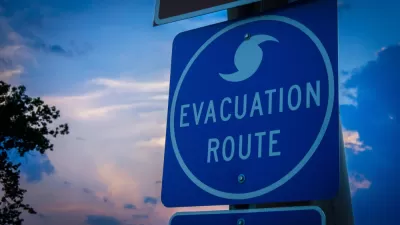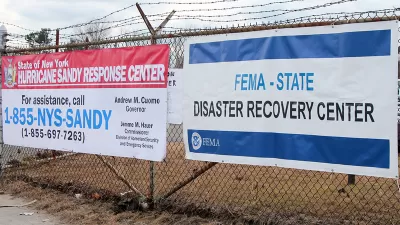Disaster prediction is a "growth industry", writes Nathaniel Rich, and one that has made incredible strides over the past several years. But will all this information lead us to make better decisions about where we choose to live?
"We are now able to prophesy impending cataclysms with a specificity that would have been inconceivable just several years ago," explains Rich. "Several factors have contributed to this progress: a growing public anxiety about disasters; advances in disciplines as disparate as computer science, fluid mechanics, and neuroscience; and an infusion of funding from governments, universities, and especially corporations, which have figured out that disaster planning saves money in the long run."
"Disaster predictions will become more accurate, but what difference will it make? Will it save lives, or even change behavior?"
"Many millions of people, of course, don’t have a choice—they cannot afford to move. But those who can leave—especially those who can leave—tend to stay. To rebuild is heroic; to move is a retreat, an act of cowardice. "
FULL STORY: THE NEW SCIENCE OF DISASTER PREDICTION

Planetizen Federal Action Tracker
A weekly monitor of how Trump’s orders and actions are impacting planners and planning in America.

Maui's Vacation Rental Debate Turns Ugly
Verbal attacks, misinformation campaigns and fistfights plague a high-stakes debate to convert thousands of vacation rentals into long-term housing.

San Francisco Suspends Traffic Calming Amidst Record Deaths
Citing “a challenging fiscal landscape,” the city will cease the program on the heels of 42 traffic deaths, including 24 pedestrians.

Amtrak Rolls Out New Orleans to Alabama “Mardi Gras” Train
The new service will operate morning and evening departures between Mobile and New Orleans.

The Subversive Car-Free Guide to Trump's Great American Road Trip
Car-free ways to access Chicagoland’s best tourist attractions.

San Antonio and Austin are Fusing Into one Massive Megaregion
The region spanning the two central Texas cities is growing fast, posing challenges for local infrastructure and water supplies.
Urban Design for Planners 1: Software Tools
This six-course series explores essential urban design concepts using open source software and equips planners with the tools they need to participate fully in the urban design process.
Planning for Universal Design
Learn the tools for implementing Universal Design in planning regulations.
Heyer Gruel & Associates PA
JM Goldson LLC
Custer County Colorado
City of Camden Redevelopment Agency
City of Astoria
Transportation Research & Education Center (TREC) at Portland State University
Jefferson Parish Government
Camden Redevelopment Agency
City of Claremont




























